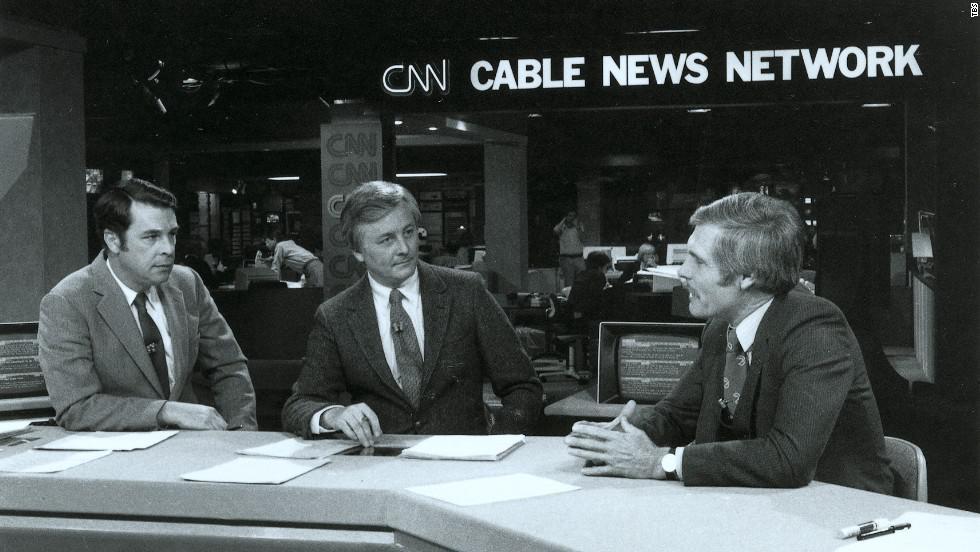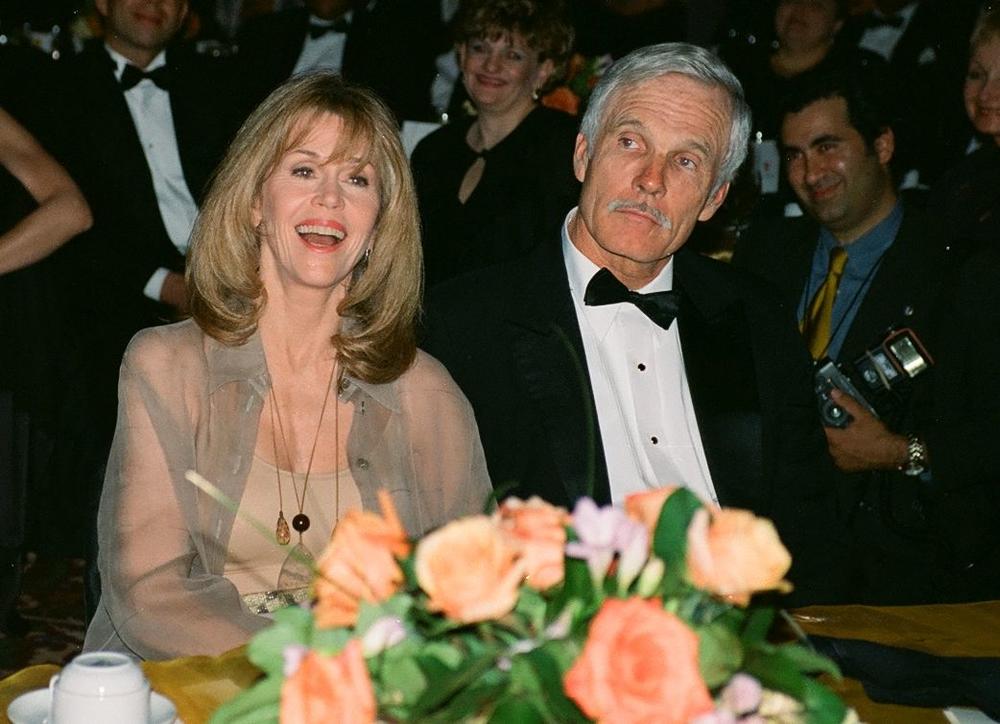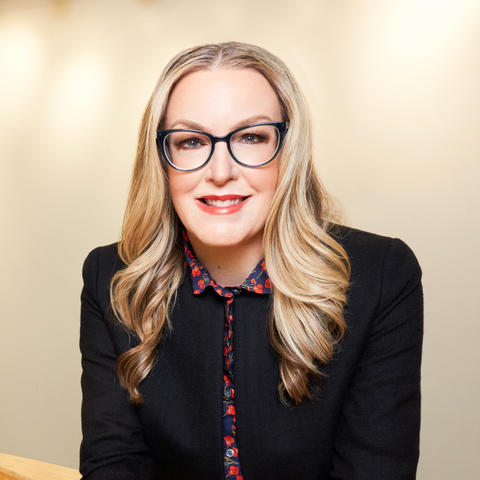
Section Branding
Header Content
'Call Me Ted' is a riveting look at the life of CNN cofounder Ted Turner
Primary Content
GPB's Kristi York Wooten reports on the premiere of Call Me Ted, a new documentary series about Ted Turner.

The new documentary Call Me Ted is an autobiographical recounting of Ted Turner's career and colorful travails, featuring juicy stories about the rise and fall of his media empire, his love affair with actress Jane Fonda, his family’s philanthropy — and how his success helped Atlanta gain recognition as an international city.
The six-part series landed on Max on Nov. 13.
The night before its launch, the Atlanta History Center hosted an exclusive premiere party filled with the CEOs, civil rights heroes, and media executives who helped Turner along the way.
Warner Bros. Discovery CEO David Zaslav, who helms the company that now owns Turner's original portfolio of TBS, CNN, TNT, TCM, Cartoon Network and Adult Swim, made remarks about how Turner changed the industry. Then he instructed the crowd in the auditorium to sing happy birthday to Ted, who was beamed onto the big screen via Zoom along with a homemade cake, his two daughters and son-in-law.
Turner’s 86th birthday is still a few days away, but this showing of Call Me Ted brought civic leaders together including Ambassador Andrew Young and Trumpet Awards creator Xernona Clayton and former CNN president Tom Johnson.
Turner was diagnosed with Lewy body dementia in 2018.
The Call Me Ted project’s creative team, producer Joni Levin and writer/director Keith Clarke, said Turner was due for an exhaustive and unvarnished examination of his life and career.
"I realized that there's been a lot of smaller kind of docs that have been out there," Levin said. "But there's never been one that does the real definitive deep dive, you know, on his life and legacy, where you're not just looking at his achievements and accomplishments — which are many, as you know — but really, the shadows and the obstacles that were behind the man that made him who he is today."
Call Me Ted is named after Turner’s 2008 autobiography and follows its namesake as he heads to a Cincinnati boarding school at age 4, to military school and to Brown University, where he was kicked out. He then worked for the family advertising company in Savannah and Macon, Ga., in his early 20s.
He moved to Atlanta in 1964 after his father’s suicide. He also lost his sister, who died at 17 after a long illness.
The doc uses animation to illustrate poignant flashback scenes narrated by Ted Turner.
Turner said in the series that he considered his father a best friend even though he said he was abandoned and whipped with coathangers as a young child.
“'Teddy, you're just not going to make it [in business],'" he recalled his father saying.
Turner's eldest son, Teddy, said his dad's need to make his own father proud was a key driver in his success.
"But it was, ‘I really want to show him, prove to him that I could do it,’" Teddy Turner said. "For whatever reason, when his dad was around, he was always a failure."
"Turner Advertising represented my father's life's work," Ted Turner added in the scene. "He loved the company, and what he'd really want me to do was to save it."
Building, merging and saving media companies is a theme throughout Call Me Ted. But the documentary's richness comes from mining billionaire Turner’s risk-taking and eccentricities — from racing yachts, broadcasting wrestling, buying the Atlanta Braves baseball team and a Russian TV station to creating the Goodwill Games, Captain Planet, the United Nations Foundation and the Nuclear Threat Initiative. He hunted, fished, bought ranches and became one of the largest private landowners and conservationists in the country.
He also smoked cigars in meetings, befriended Fidel Castro and Jacques Cousteau, spoke off-the-cuff about money, sex, business and his own failures — often without a script.
His larger-than-life personality — a mix of Southern wit and grit — could only exist in a place like Atlanta. Beneath it all, the city looms large in the doc's storytelling, director and writer Keith Clarke said.
"We have a greater appreciation [of the city], just because I think he opened up the world to what Atlanta is and the history and the potential of the people," Clarke said of CNN's beginnings in 1980 on Techwood Drive in Midtown Atlanta. "And now, after all these years, you know, we see what that is. It's one of the most, you know, fastest-growing, thriving communities in the country. And, Ted, you know, he has to be acknowledged that he was a part of that. Bringing CNN here was a way to put Atlanta on the map."
Call Me Ted takes viewers inside the newsroom at CNN during two pivotal moments in recent American history: the Gulf War in 1991, when the network's reporters Bernard Shaw, John Holliman, and Peter Arnett reported live from Bagdad, and the morning of Sept. 11, 2001, when Turner, who had lost control of his company after a 1996 Time Warner merger and another with AOL in 2000, watched the second plane hit the World Trade Center from his office in Atlanta as reporters rushed by him in the hallway.
In addition to the male executives, confidantes and late family friend Jimmy Brown featured in Call Me Ted, Turner’s personal and professional lives are vividly illustrated by Turner's eldest daughter, Laura Turner Seydel; Jane Fonda, to whom Turner was married from 1991 to 2001; and CNN International anchor Christiane Amanpour, who began her career at CNN in 1983 as a desk assistant in Atlanta.

At one point, Amanpour remembered "delivering coffee and Twinkies" to a boss when she heard rumors that Turner wouldn't make payroll that week. She went on to say how Turner was ahead of his time on climate change and how the media universe owes him for many innovations.
Fonda detailed her time with Turner as she, an Oscar winner and one of the fiercest feminists and liberal thinkers in Hollywood, gave up a decade of her career to follow and marry a charming yet unfaithful billionaire who had some differing political views but also made her fall head-over-heels in love.
Levin said she hopes the variety of voices in Call Me Ted proves that Ted Turner’s magnetism runs deeper than the surface.
"He has the vision, but more importantly, he believes in the vision, truly believes it," Levin said. "And he's the guy who was told 'No!' so often. I mean, on everything. And he just took 'no' and turned it into 'on.'"


